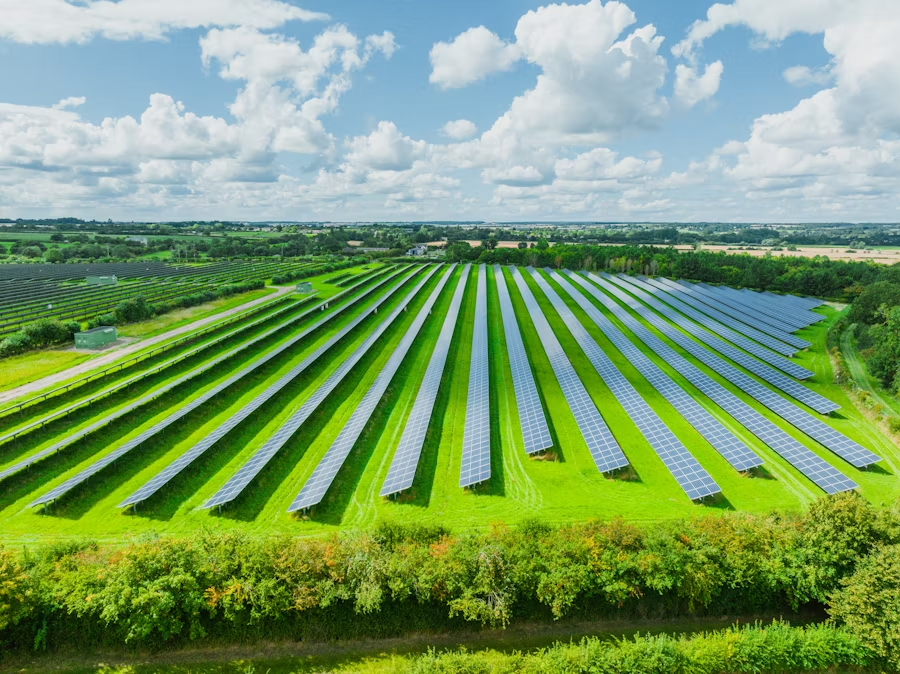Jeva Lange at Heatmap noted that according to their own poll the Americans particularly likely to attend meetings on, and to speak up against, proposed clean energy projects, include “people who owned 50 or more acres of land” who were also disproportionately likely to be Trump supporters. But instead of launching into a screed against them, she listed their concerns respectfully and urged outreach to find mutually acceptable solutions. Which is hugely desirable not just because it might lower the temperature of debate, but because they would have to be solutions.
On the subject of lowering the temperature, she insists that:
“Clean-energy developers should be making a concerted effort to reach out to large landowners from the start, but not just because they’re one of the more vocal contingents at the local town hall. More often than not, the energy transition will take place in literal backyards, and many opportunities for collaboration or partnership are lost when misinformation, conspiracies, or sneaky development tactics lead instead.”
Such things are certainly not calculated to build wide, long-term support. But nor is enthusiastic endorsement of policies big or small that prove expensive disappointments, as so much of climate policy has. And the change of mood is fairly plain in the United States.
As Roger Pielke Jr. put it regarding Harris and the debate:
“It is not unusual for politicians to change their policy views, particularly as they move from the idiosyncrasies of party primaries to the broader dynamics of a general election. In this instance, Harris’ volte face on fossil fuels appears to reflect a new-found sobriety among Democrats about the realities of energy, the economy, and geopolitics.”
Also maybe just the politics? Another Heatmap author, Robinson Meyer, recently discussed Kamala Harris’s presidential debate performance on energy and climate as surprisingly substantive including that she:
“struck a careful, moderate tone during the debate between the need for climate action and the ongoing importance of fossil fuel extraction.”
His assessment was that:
“In a way, Harris has essentially returned to Obama’s 2012 ‘all of the above’ energy policy. That approach remains unpopular with climate activists, who think it did too much for the oil and gas industry; personally, I think it’s an open question whether Obama actually believed in the ‘all of the above’ approach or was subtly trying to help renewables all along.”
Then, after a tip of his hat to the Inflation Reduction Act, he cautioned that:
“What’s most important, though — and what I hope climate advocates do not overlook — is that Harris’s tack here reflects the broad state of American public opinion. While most Americans want to reduce greenhouse gas emissions, they do not seem to want an energy revolution: More than two-thirds of Americans believe the country should use a mix of renewables and fossil fuels, according to the Pew Research Center, and less than a third believe the country should rely ‘entirely’ on renewables.”
Many people are listening, at least tactically. As the New York Times headlined a Lisa Friedman column, “Harris Goes Light on Climate Policy. Green Leaders Are OK With That.” And in another Heatmap piece Paul Waldman let the cat out of the bag in urging Kamala Harris to soft-peddle her climate ambitions lest they repel voters, leverage abortion to get elected, then implement them anyway. But she might spare a thought for why such things now repel voters. It’s called bitter experience. And for the degree of cynicism necessary to write:
“And if most of the public takes only occasional notice at campaign time? There’s nothing wrong with that. Campaigns are almost always superficial, and this one isn’t any different. It’s what happens afterward that matters.”
Especially since the United States has frequent elections, including for the entire House of Representatives every two years, so voters who feel tricked just might respond promptly and vigorously. As they might very well especially if the Manhattan Contrarian is right, which he very often is, that Harris is a deep green radical beneath the recent thin coat of moderation.
Incidentally Inside Climate News wrote instead that “Although President Joe Biden already has cemented an unmatched legacy of climate change action, Vice President Kamala Harris raised the bar the moment that she entered the presidential race on July 21.” But Holman W. Jenkins Jr. seems to us to have nailed it in the Wall Street Journal with his assessment that:
“Even Democrats don’t want to hear about climate change. The words were barely mentioned at the convention, and every transcript I examined omitted the once obligatory Biden modifier ‘existential.’ The reason isn’t a mystery. Joe Biden’s policies are having not the slightest effect on climate change and yet somebody will still have to pay Ford’s $130,000 in losses per electric vehicle in the first quarter.”
When the rubber hits the road on this file, instead of a charred black streak you get a river of red ink, and some people at least are getting it even in places you might not have expected.
We don’t want to get hysterical here. UK cabinet minister Ed Miliband, who we criticized in another post this week, just put out a pseudo-hip video saying when he was a young and foolish Energy Secretary he believed in a “trilemma” of balancing affordability, security and sustainability when it came to power generation. But now that he’s an older and wiser Energy Security & Net Zero Secretary, he’s realized all good things come bundled together and so if they just keep doing what’s creating a disaster it will end wonderfully.
In the real world, Roger Pielke Jr. reports from Japan, there’s a lively discussion of reviving the nuclear industry shut down in a panic after the disaster at the extremely poorly designed Fukushima Daiichi facility (the backup power generation crucial to venting the reactors if the cooling system failed was mostly located underground where of course the tsunami flooded and short-circuited it). Explaining that Japan may well represent “a glimpse into the future”, he writes:
“Japan has a relatively impressive record of post-Paris decarbonization as compared with other countries, even with its post-Fukushima nuclear shutdowns. However, the devil is in the details — accelerated Japanese decarbonization has a lot to do with a falling Japanese population in the context of continuing economic growth, and reductions in overall energy consumption — a unique suite of characteristics that cannot be applied to many places around the world. Like every other country, Japan wants to sustain and even accelerate economic growth, requiring continuing expansion of trade, while maintaining its commitments to emissions reductions. Of course, whether expressed or not — the former trumps the latter. It is an iron law.”
Oh. That. Somebody should probably tell Ed Miliband that he represents the past masquerading as the future… but don’t expect him to understand it.


